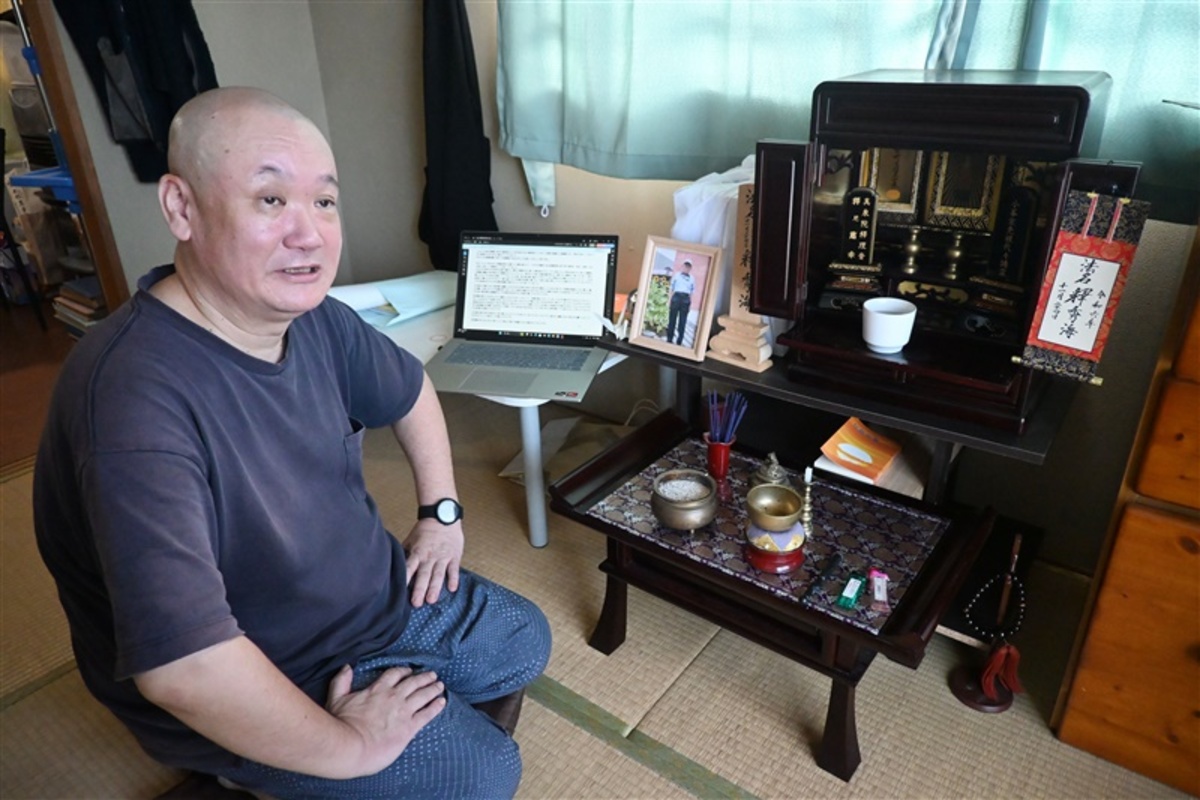At dawn, when the first rays of sunlight hit the snow-capped peaks of Speen Ghar (The White Mountain), the valley below glows in soft gold. Parachinar, the only Shiite-majority city among the Khyber Pakhtunkhwa tribal districts, lies cradled in this rugged frontier along the Pakistan-Afghanistan border.
For decades, these hills were known for sectarian clashes and roadblocks, not peace. Yet, beneath the towering ridges of Speen Ghar, a quieter story unfolds—one of faith, friendship, and lasting coexistence.
Near Parachinar, in the village of Malana, tucked amid walnut groves and spring-fed streams, an Imambargah and a Sikh Gurdwara stand right next to each other. Their shared wall tells a story older than the conflicts that have scarred this borderland.
“This is Baba Nanak House,” says Barkat Ali, aged 60, the caretaker of the Gurdwara, pointing to the modest building marked by an orange Sikh flag. Inside, a green cloth drapes the Takht, where ceremonial kirpans (daggers) gleam softly in the morning light.
“Sikhs are our brothers. During their festivals, we open our Imambargah doors for them and offer them accommodation. We even provide wood for their cooking,” he adds.
Centuries ago, the Turi tribe, a Shiite Pashtun community in Kurram, donated this very land to the Sikhs and helped build their Gurdwara—a gesture of solidarity that continues to resonate through the village’s stone courtyards and narrow alleys.
Though no Sikh families remain in Malana today, devotees travel from across Pakistan to visit Baba Nanak House, where tradition holds that Guru Nanak, the early 16th-century founder of Sikhism, once stayed.
In nearby Parachinar’s bustling Turi Market, the Singh brothers Mukesh and Rakesh carry that legacy into the present. In their early thirties, the twins run a family spice shop and speak fluent Pashto, dressed in the same shalwar kameez as their Muslim neighbours.
Every Muharram, as Shiite mourners mark the martyrdom of Imam Hussain, the Singhs serve tea, sweet drinks, and baskets of candies to participants.
“This is our way of honouring our friends,” Rakesh says. “Our fathers and grandfathers did it, and we will pass it on to our children.”
“Before 2007, Shiite, Sunni, Sikh, Hindu, and Christian neighbours celebrated each other’s festivals,” he recalls. “We danced the Attan together at weddings. Those were beautiful days.”
Their Muslim neighbours return the affection. Gul Hassan, a dry fruit vendor, recalls attending the brothers’ weddings and gifting them a traditional sehra, a bridal headdress.
“We share tea, lunch, and life,” he says with a smile.
Kurram once had a thriving Sikh community, with three functioning Gurdwaras and nearly 80 families, before sectarian violence erupted in 2007. Today, only seven families—around 45 people—remain. Many left for larger cities such as Peshawar, Lahore, and Hasan Abdal, seeking safety during years when the main Parachinar-Tal Road remained sealed by conflict.
Yet even in those violent times, Sikh lives were spared. Local Muslim elders ensured safe passage for those who chose to leave.
“During the conflict, the roads were opened and security provided so Sikh families could leave safely,” recalls Mukesh Singh.
Santokh Singh, who migrated to Peshawar, remembers the Parachinar of his youth with fondness.
“Before 2007, Shiite, Sunni, Sikh, Hindu, and Christian neighbours celebrated each other’s festivals,” he says. “We danced the Attan together at weddings. Those were beautiful days.”
Despite the shrinking population, acts of generosity continue to knit the communities together. During Ramadan, Mukesh discreetly distributes food to poor Muslim families, fulfilling the Sikh tradition of charity without seeking recognition.
Local Muslim leaders, too, step forward in times of need. Nazir Hussain, secretary of the Parachinar Shopkeepers Union, often donates to Sikh religious events.
“Whenever the Sikh community asks for help, we provide every possible support,” he says.
Farther west in Tirah Valley, near central Kurram, Bhagat Singh, a shopkeeper with a long white beard wrapped in a dark blue turban, reflects on three centuries of shared history.
“Our families have lived here for 300 years,” he says softly. “These valleys are my home. I was born here, and here I will die.”
In a region once synonymous with bloodshed, the quiet companionship of an Imambargah and a Gurdwara offers a different narrative.
As the golden light of Speen Ghar falls over Parachinar, it illuminates not just mountains, but a truth often overlooked: that faith, when rooted in respect, can build bridges where politics too often builds walls.
https://www.thenews.com.pk/tns/detail/1346828-faith-friendship-and-quiet-harmony
